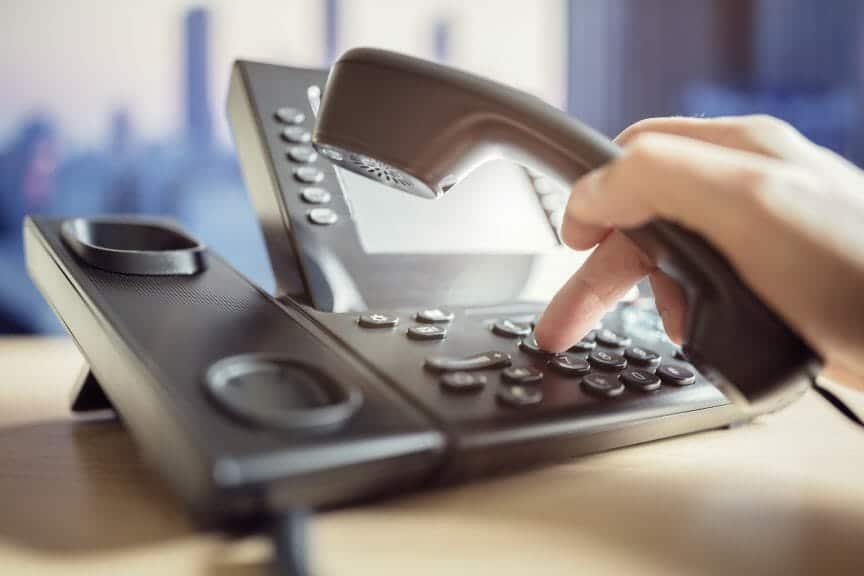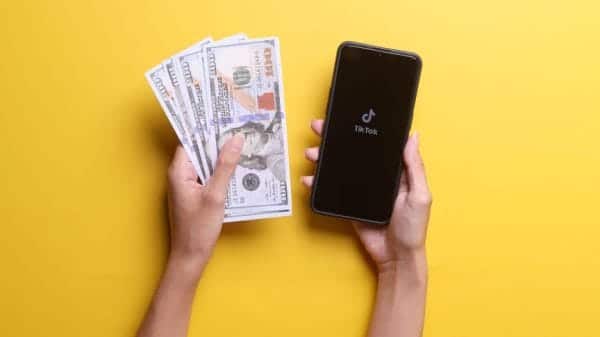There I was, at my shared desk with a mountain of papers before me. The hustle and bustle about me only increased the beating of my heart, knowing I should be joining in. This knowledge didn’t change the intense urge to delay the task at hand a little longer.
How would I explain to my teacher why I had not made a dent in the long list of contact information before me?
I had no choice but to complete my mission.
For the hundredth time, I rehearsed the script to myself. I looked down at the name and number before me. I slowly began typing the numerals, checking their accuracy with every click. As I lifted the phone to my ear, I said a silent prayer asking to be sent straight to voicemail.
While a high school phone-a-thon is not exactly a life-or-death situation, it certainly felt like one for my anxious teen self. This was not an uncommon occurrence, either. Making phone calls was a big deal for me.
I was always afraid of accidentally dialing the wrong number, saying the wrong thing, or not understanding the words said by the person on the other end. What if the person snapped at me? It is much easier to text; you can take your time to construct an answer, and all the words are written out for you to read at your own pace.
I Am Not Alone (Thank Goodness)
Negative feelings toward phone calls are pervasive in a generation growing up with text messages and social media. A substantial 90% of Generation Z members get anxious when faced with a phone call. This is no small statistic. A post by @karlmission on TikTok demonstrates an interaction between a boss and a young employee, Juli. The boss requests Juli to make a phone call, but she replies that she would much rather send an e-mail. Juli claims to have “phone anxiety” and convinces her boss to make the call himself.
@karlmission Phone anxiety gang rise up!
♬ original sound – KARL
Understanding Phone Anxiety
To understand Juli’s plight and my own, we must understand the psychology behind phone anxiety. According to the Diagnostic and Statistical Manual of Mental Disorders (DSM-5), anxiety is “anticipation of a future threat,” while fear describes a reaction to an immediate threat. Both can play a part in phobias, which involve fear or anxiety in response to certain objects or situations.
Most people experience fear and anxiety without being diagnosed with clinical anxiety. We all need a certain level of fear to steer us away from danger, such as hot stoves or dark, shifty alleyways. Healthy levels of anxiety can likewise motivate us to prepare for upcoming performances or exams. The 2015 film Inside Out demonstrates how such responses can be useful in everyday life.
The issue arises when someone experiences an anxious response to a stimulus that is not a threat. Telephobia is the reluctance or fear of making or taking phone calls.
According to VeryWell Mind, those with it may delay phone calls, like me, or avoid them altogether, like Juli. Others may obsess over what was said during a call. It can affect anyone, even those in older generations. While such nerves can appear in manageable amounts, they may cause distress if it leads to broken relationships or the loss of a job.
The Role of Instant Messaging
The increased prevalence of phone anxiety may stem from a cultural shift away from calling. It is no secret that instant messaging is on the rise. A research study from 2020 found that texts and messages were sent and received in much greater abundance than voice calls, especially among younger generations. It states that such messages serve social and entertainment purposes for the youth. In contrast, older individuals typically message for functional reasons rather than recreational.
Messaging does have its benefits. In research conducted by Jacqueline Graham from St. Catherine University, convenience was cited as a common reason for choosing texting over other forms of communication. A text is available to read whenever or wherever it suits you. You don’t need to find a quiet, isolated place to send a text. Shy individuals may also find comfort in texting over calling to connect with peers.
However, a decrease in phone calls often leaves those with limited digital skills behind. The 2020 study also found that the decline in landline use could prove detrimental to older generations with “no willingness or ability to use a mobile phone.”
While the shift to online communication might be a relief to those with a distaste for voice calls, it may render certain services inaccessible to others. For instance, I rejoice when a restaurant has an online ordering option. Still, I understand this is not the universally preferable option. Websites are confusing and frustrating for many. Thus, we cannot completely abandon voice calls just yet.
Next Steps
First and foremost, it is not productive nor accurate to blame those with phone anxiety, or even a simple preference for messaging, for the issues associated with a general decline in voice calls. No one wants phone anxiety. We similarly cannot look upon younger generations with disdain for adapting to the digital environment we live in. As the world continues to change, we naturally accommodate those changes.
Nonetheless, phone calls are still necessary, especially in businesses. Many of us will need to face our fears when entering the workforce. A video by @CFLearnFree on YouTube offers some advice for those who wish to overcome phone anxiety.
My own phone call fears lessened significantly in the past year. Why? My job requires me to answer an office phone. I knew this would be a challenge for me, but I accepted the responsibility knowing that it would strengthen my communication skills. Recently, I surprised myself with the ease with which I answered and made phone calls. I no longer meticulously rehearsed the potential conversation or delayed calling.
The sound of the landline ringing no longer inflicted dread in my mind. In my personal life, I impress myself by calling to schedule appointments without spending hours mentally preparing myself. I still make nervous mistakes at times. Practice does not make perfect; it makes better. As we face new technologies, we should examine how to make the lives of all communicators better, not forgetting the anxious caller or the landline fanatic.














